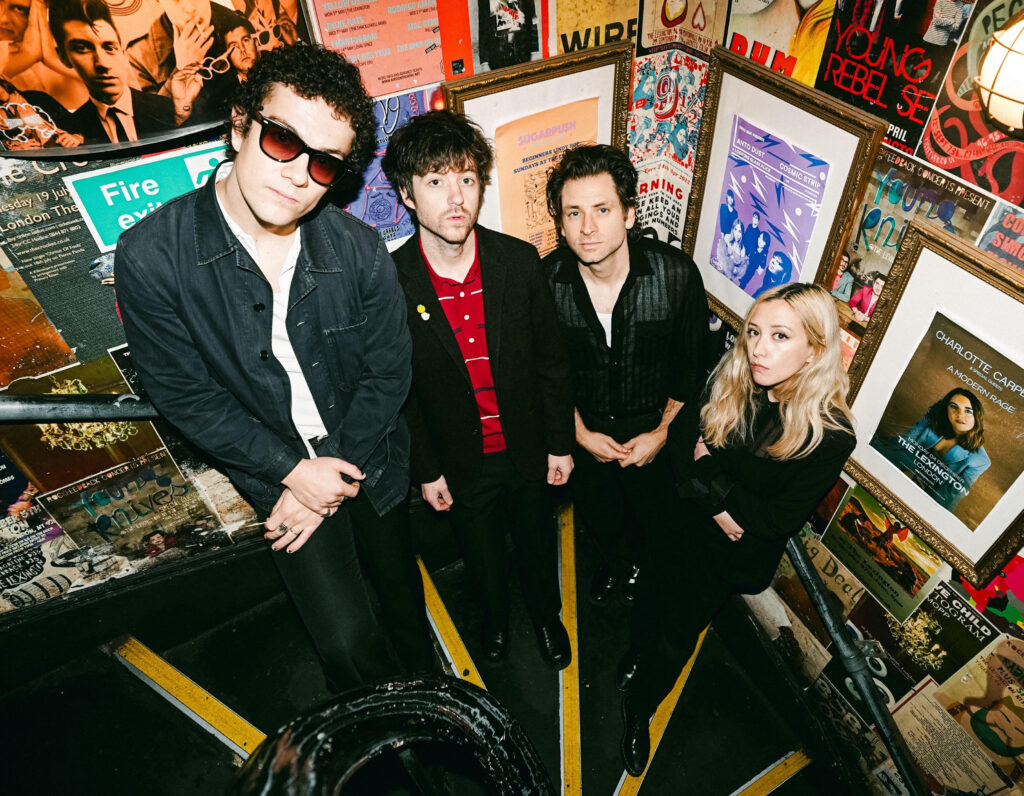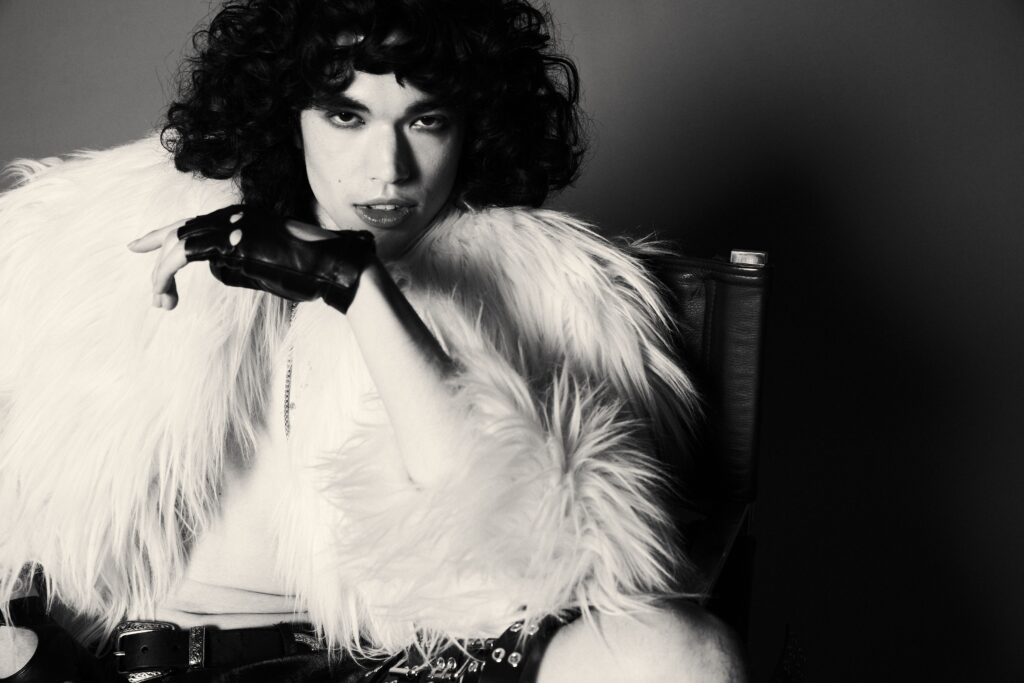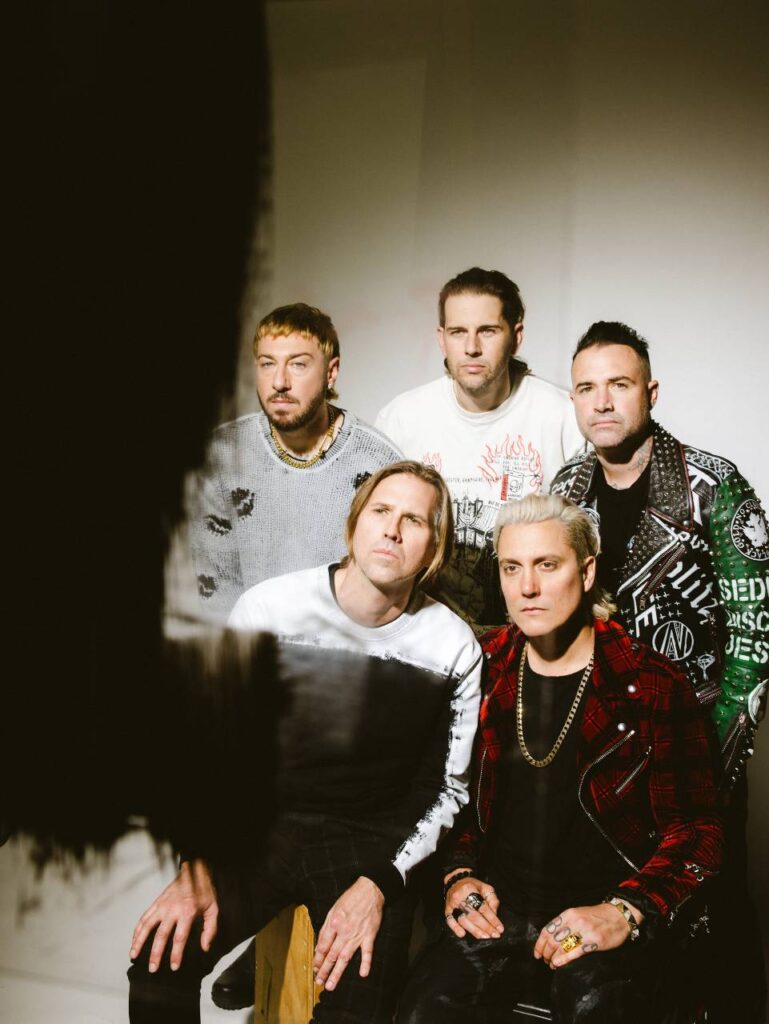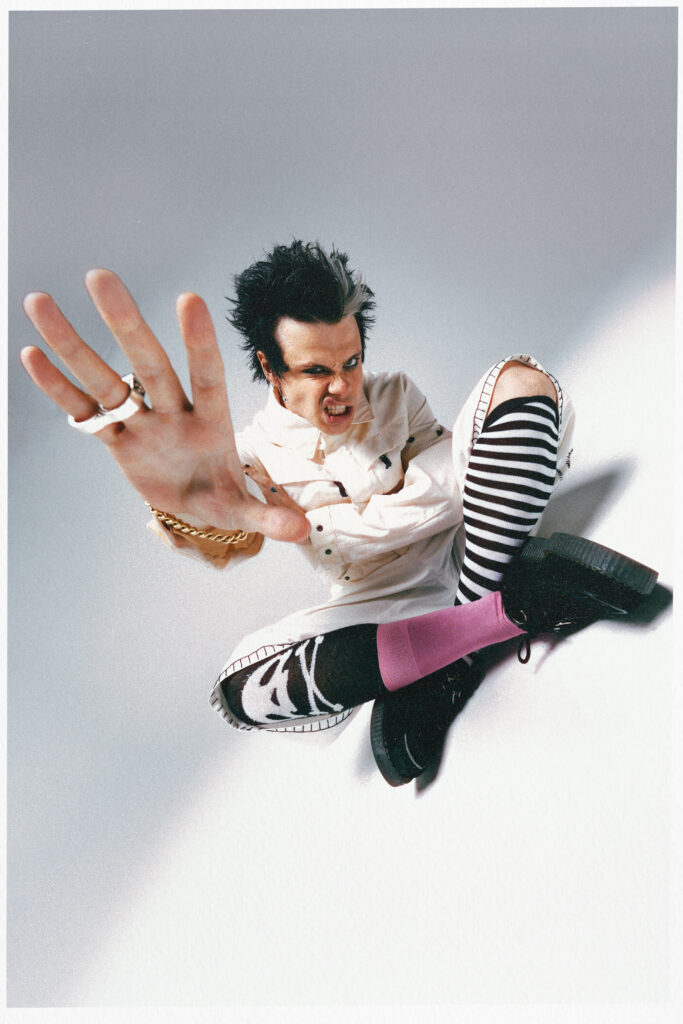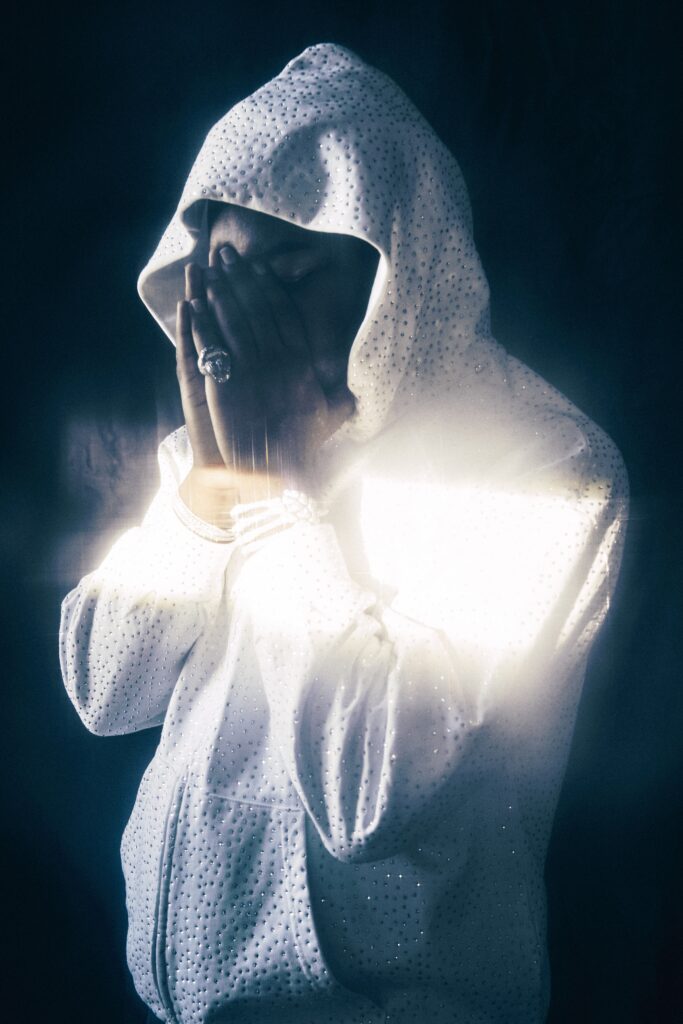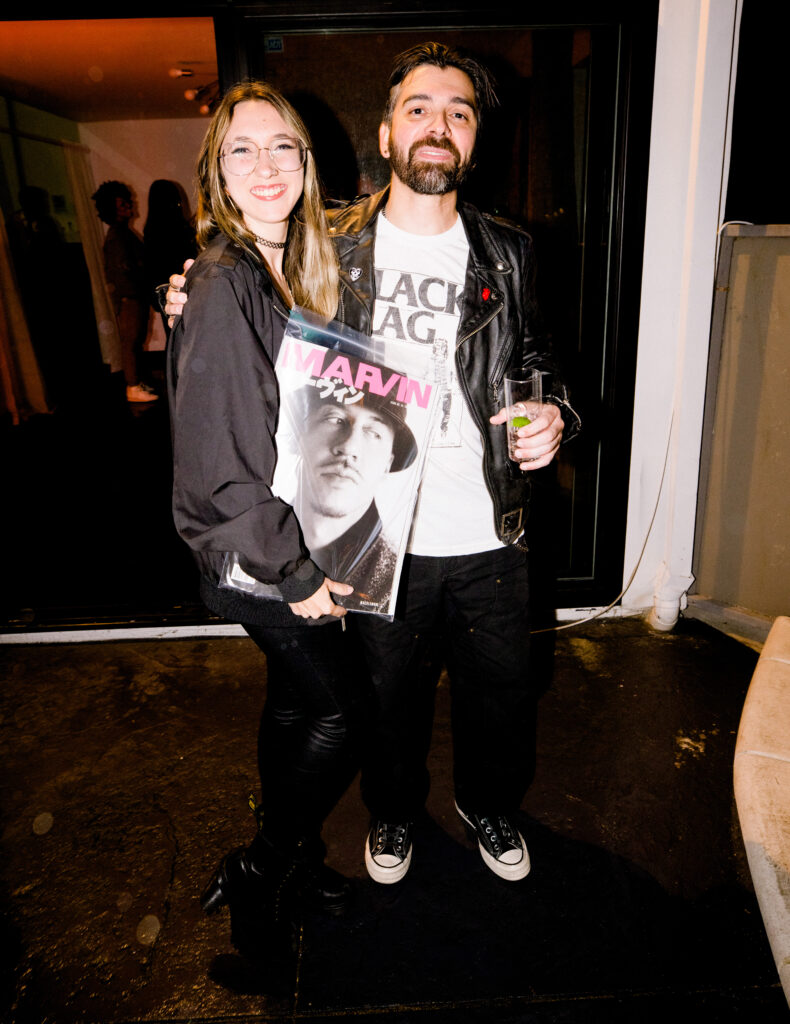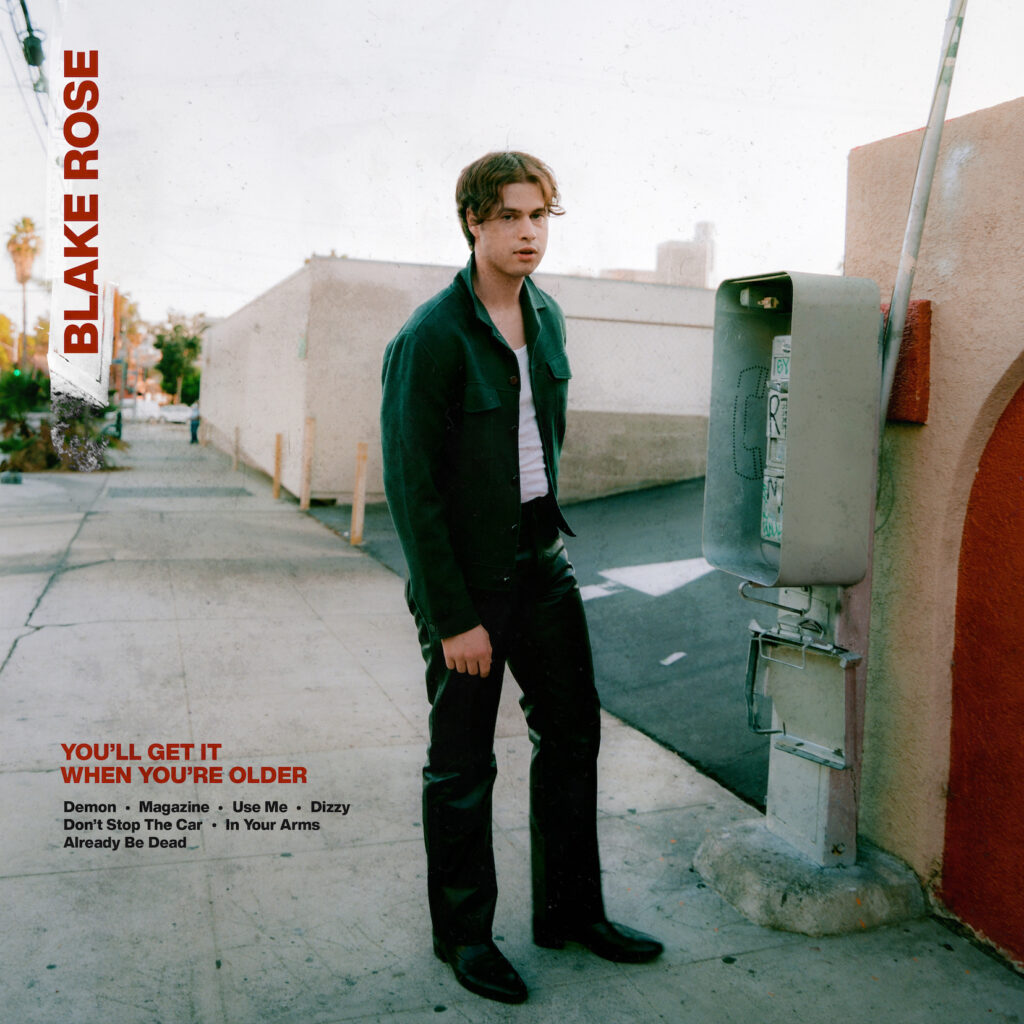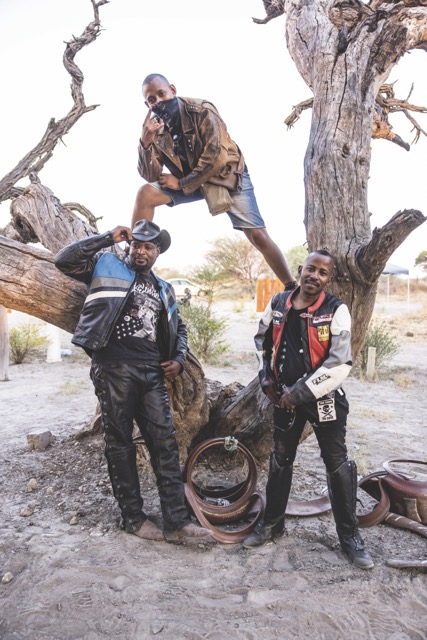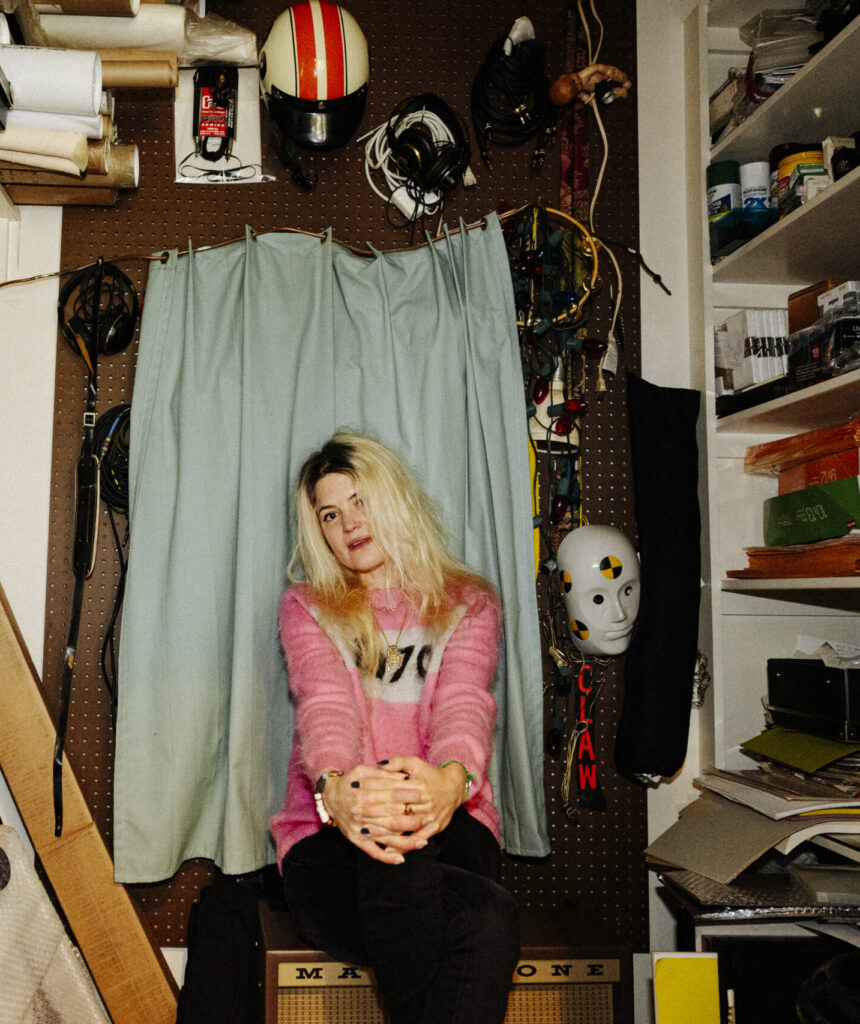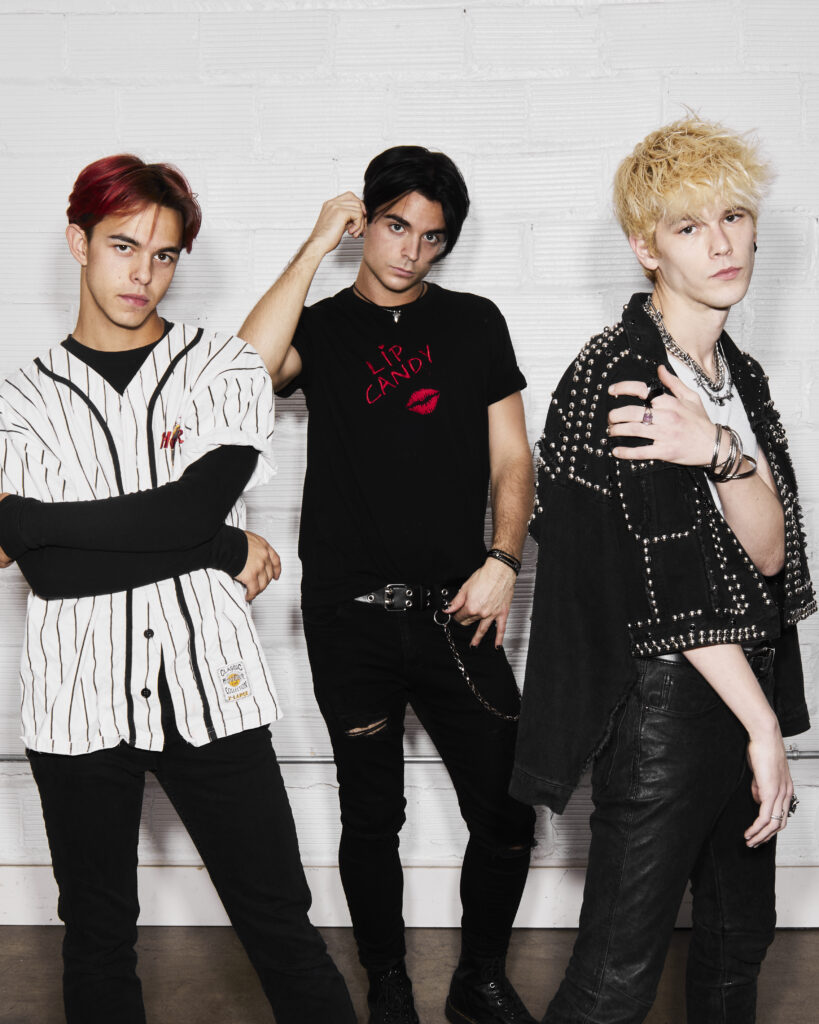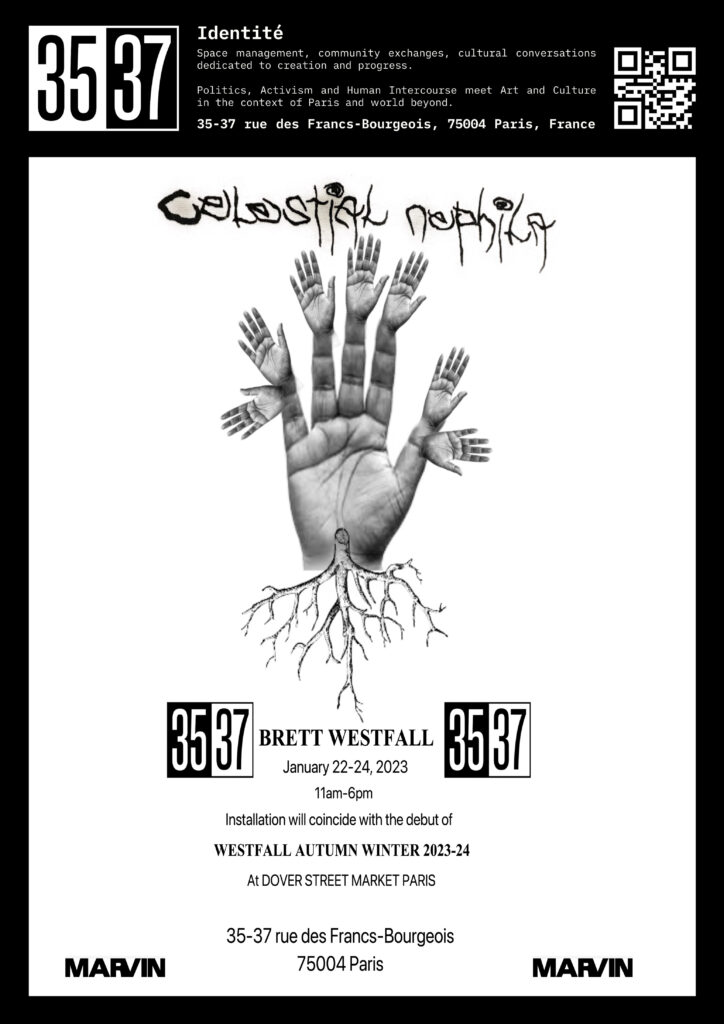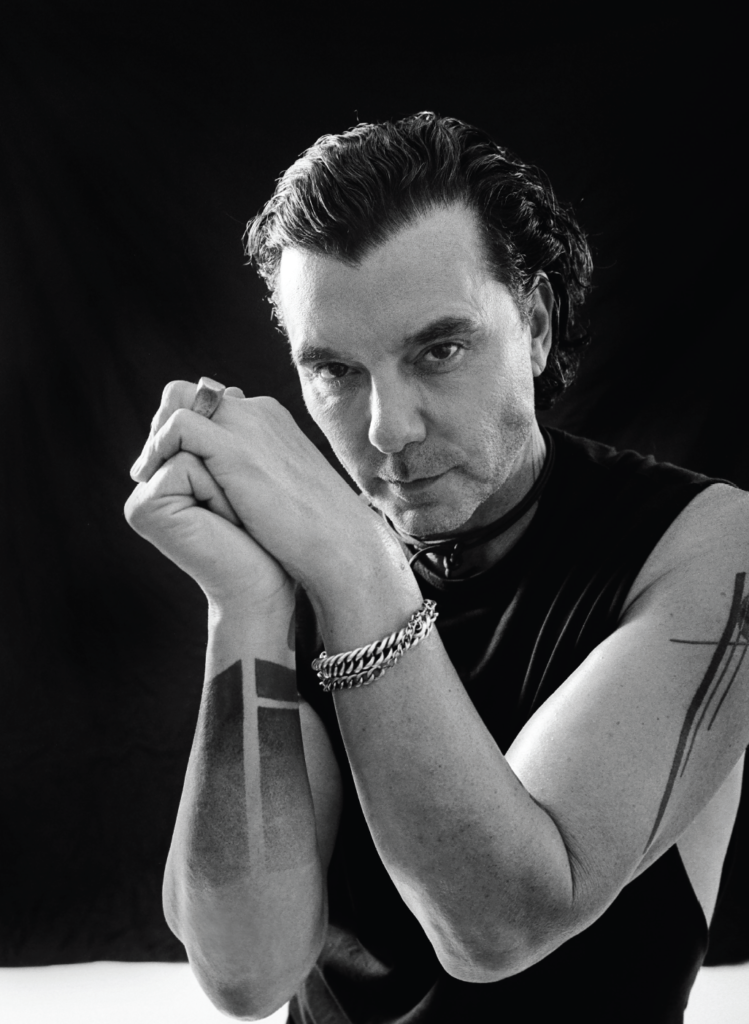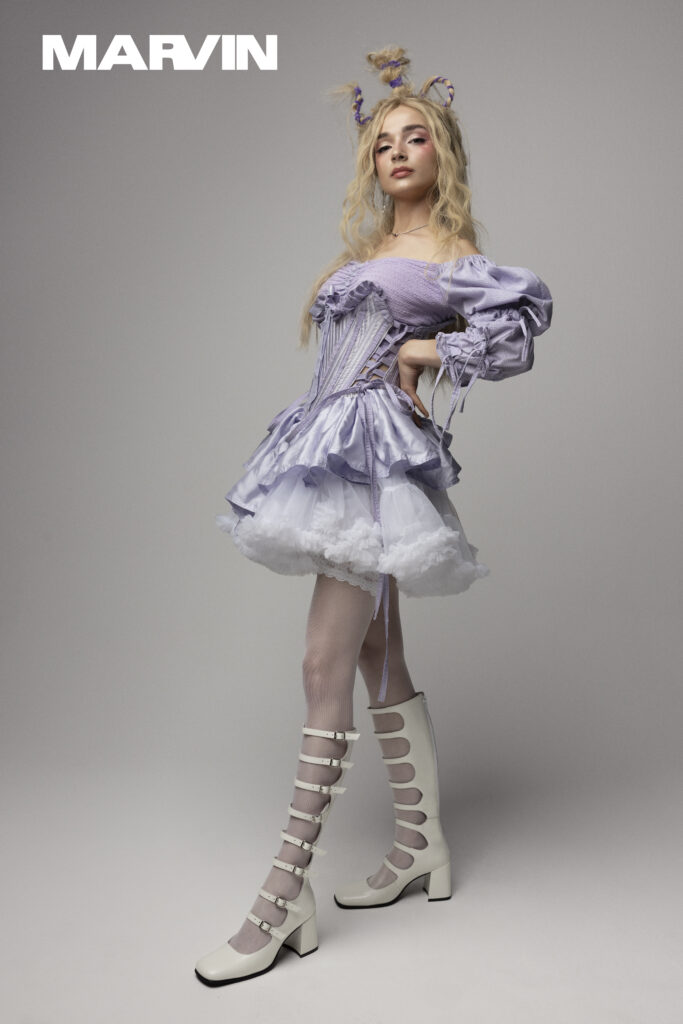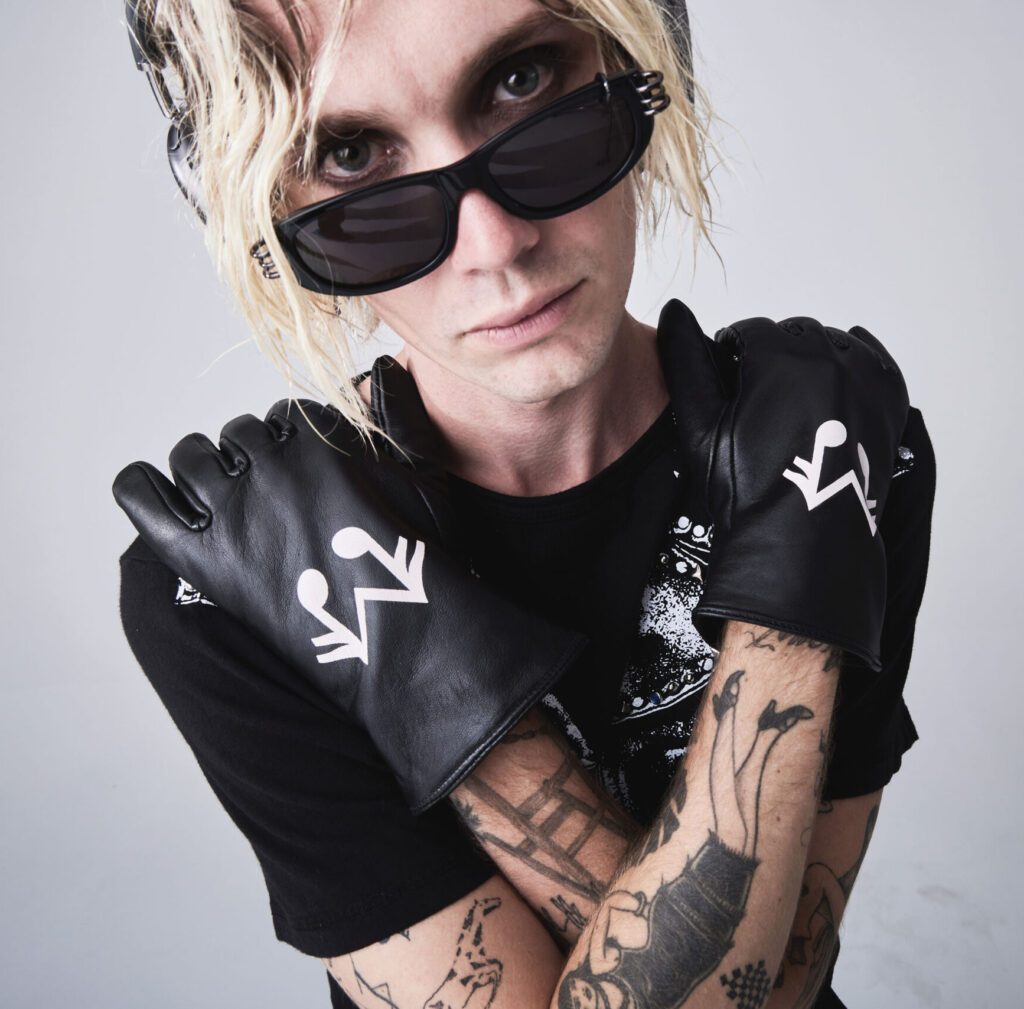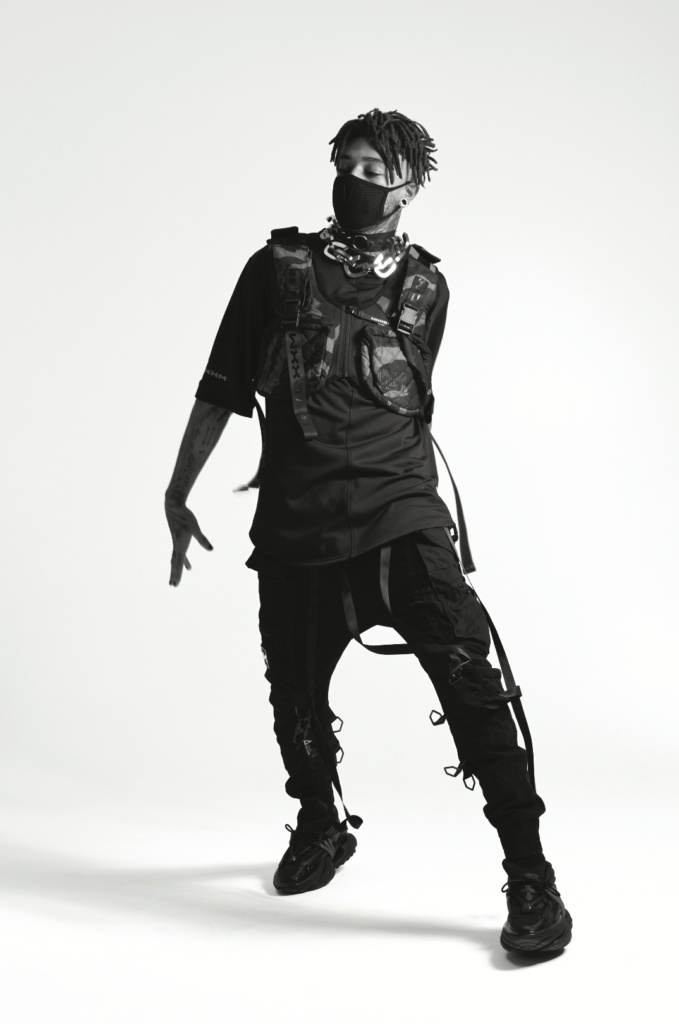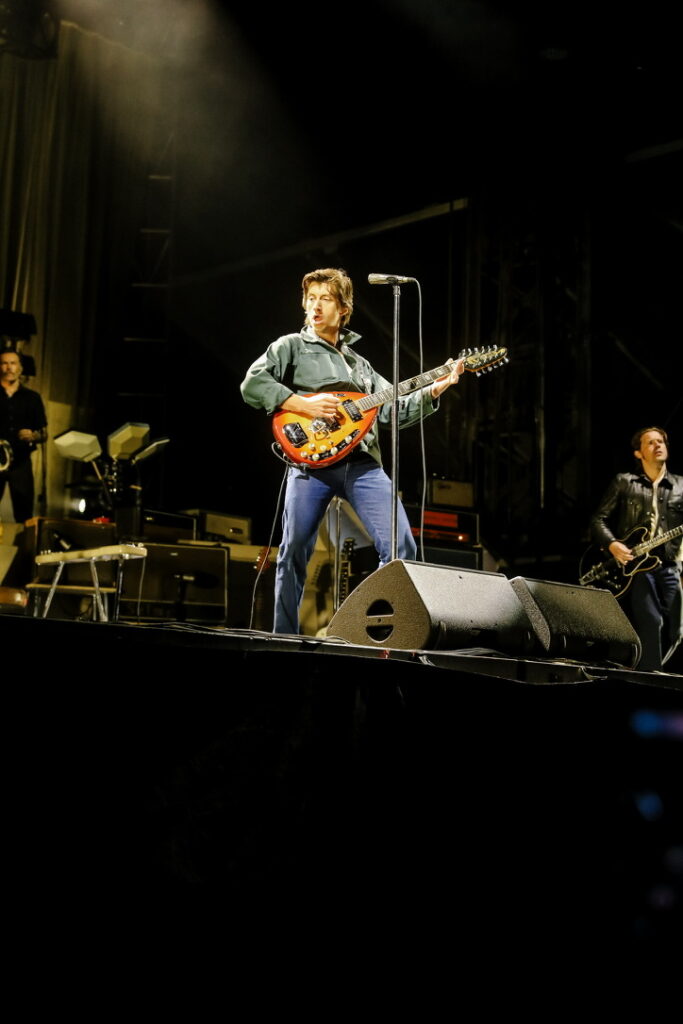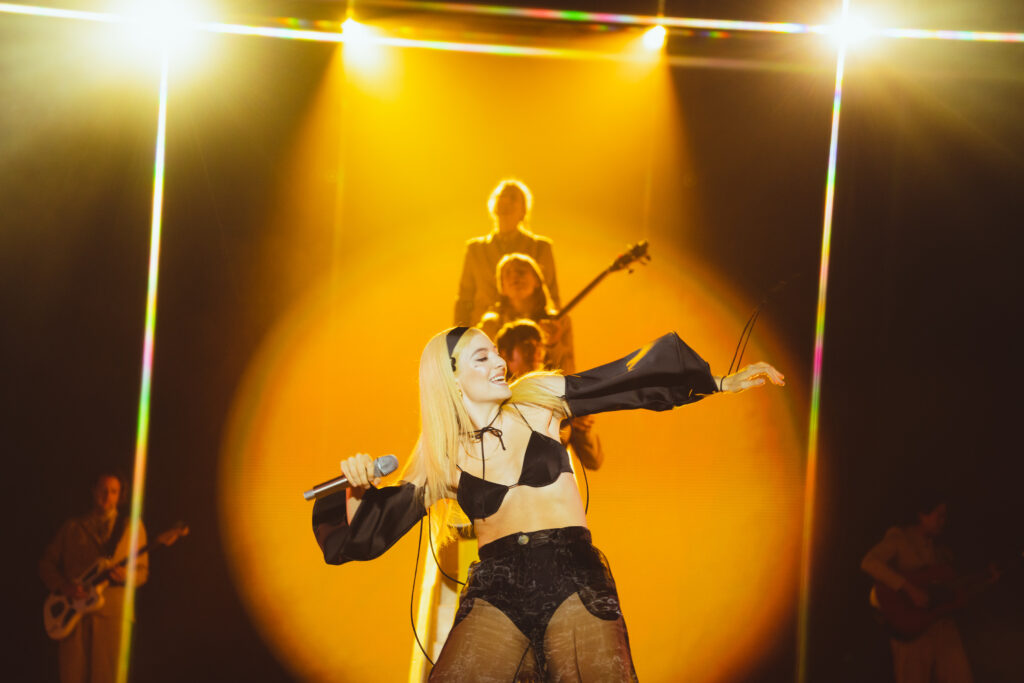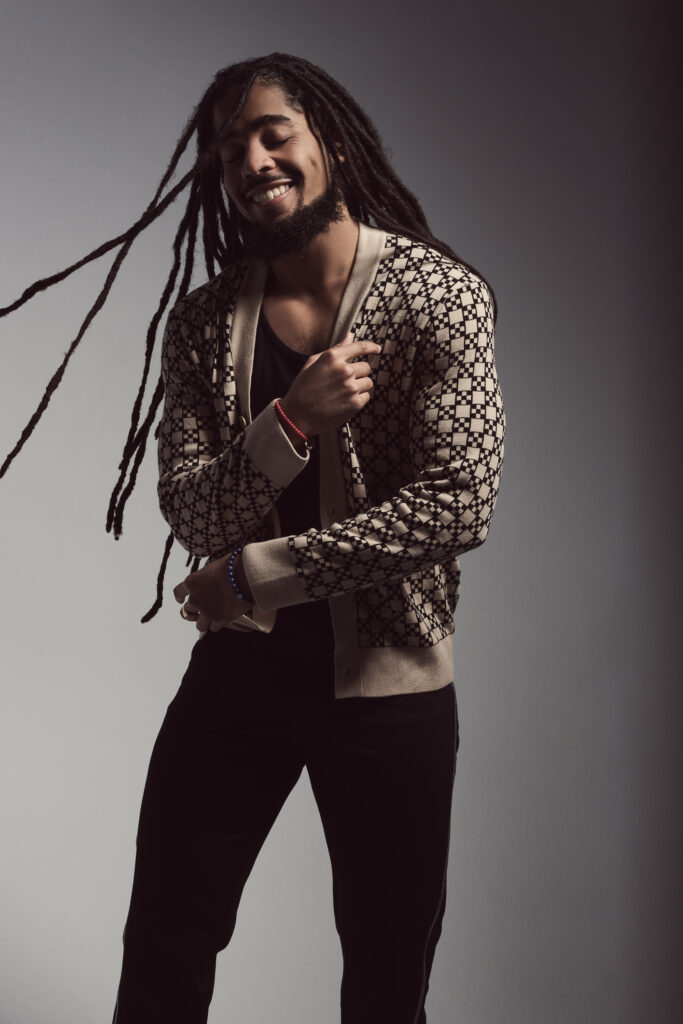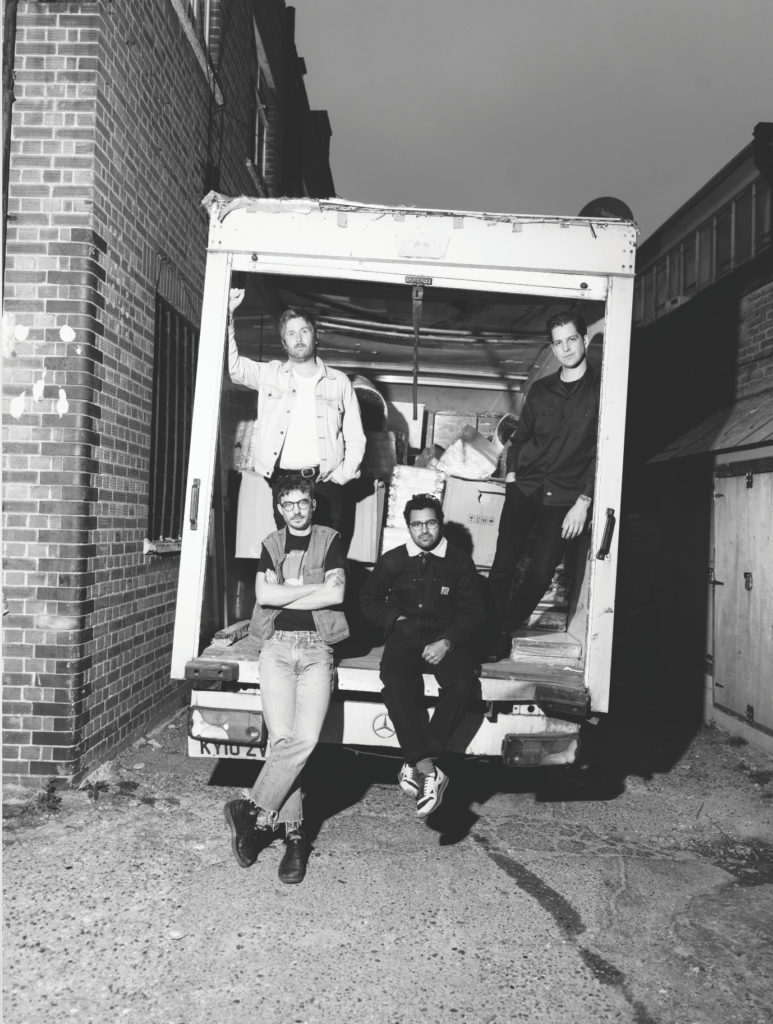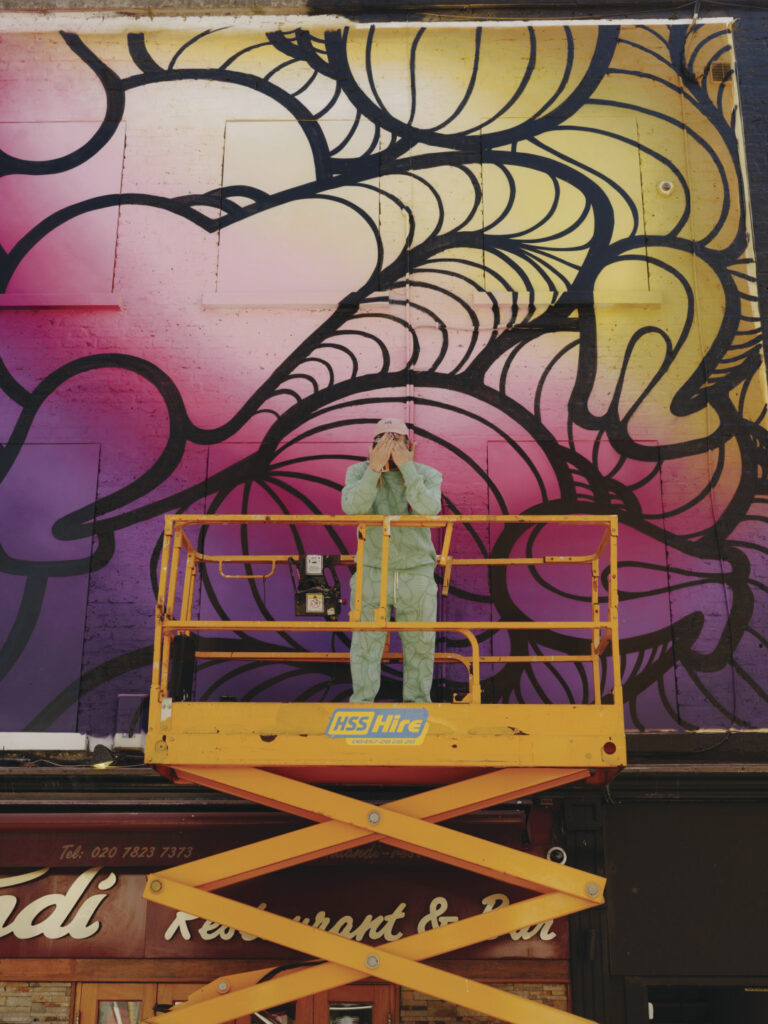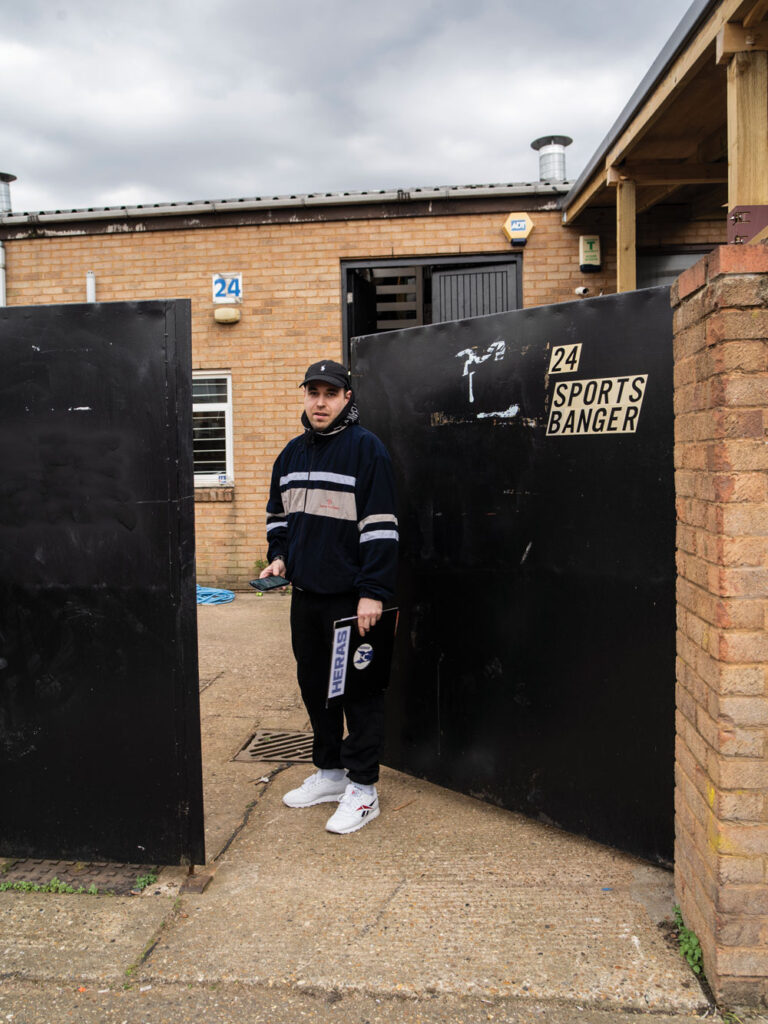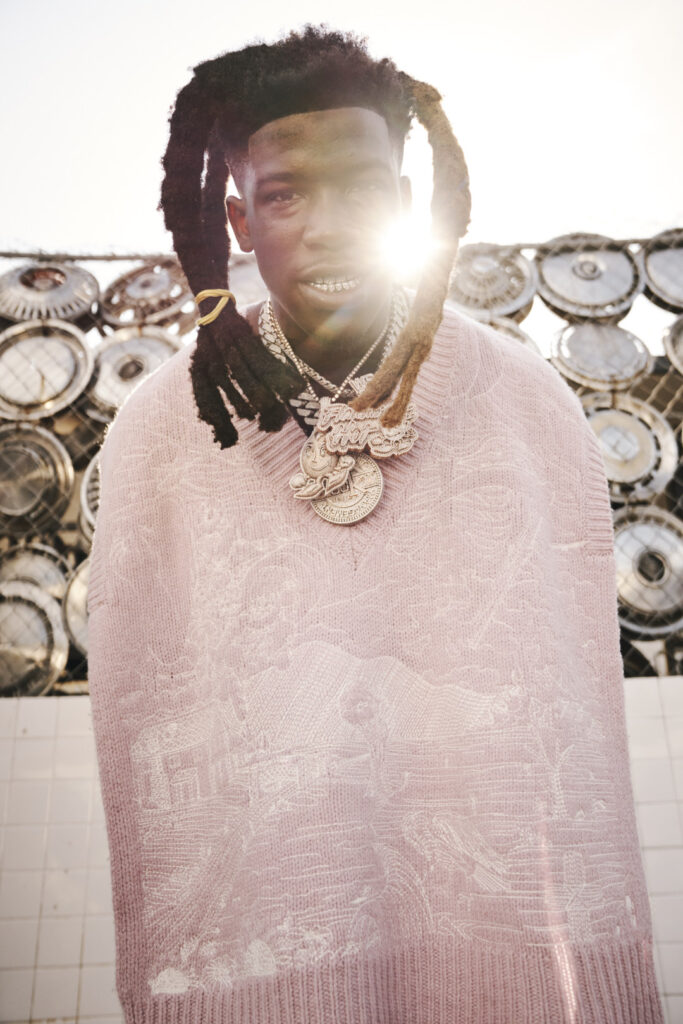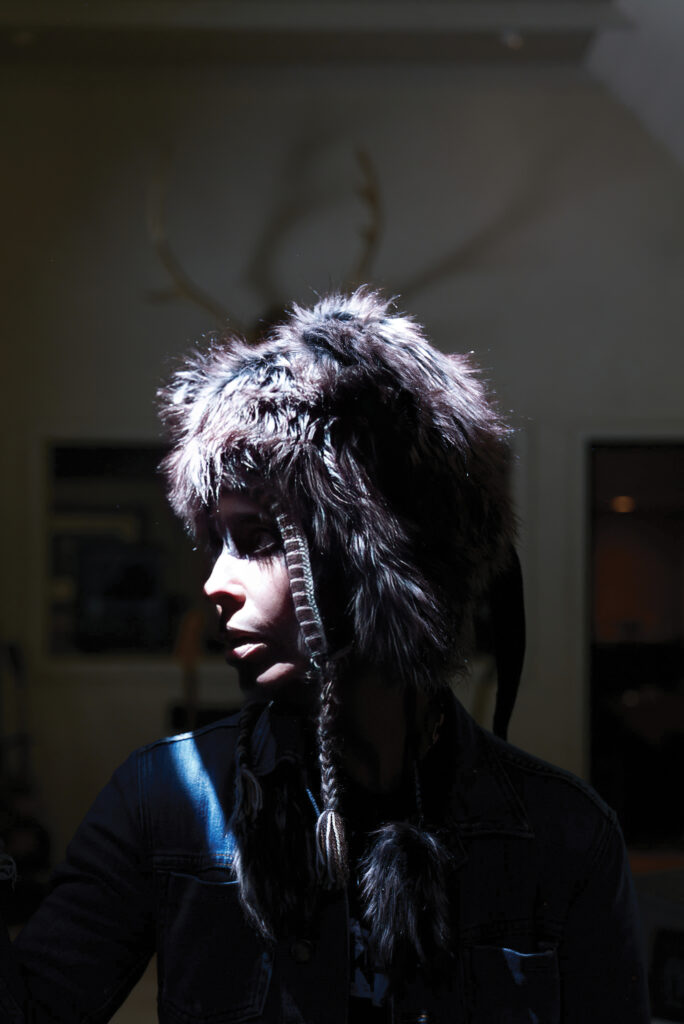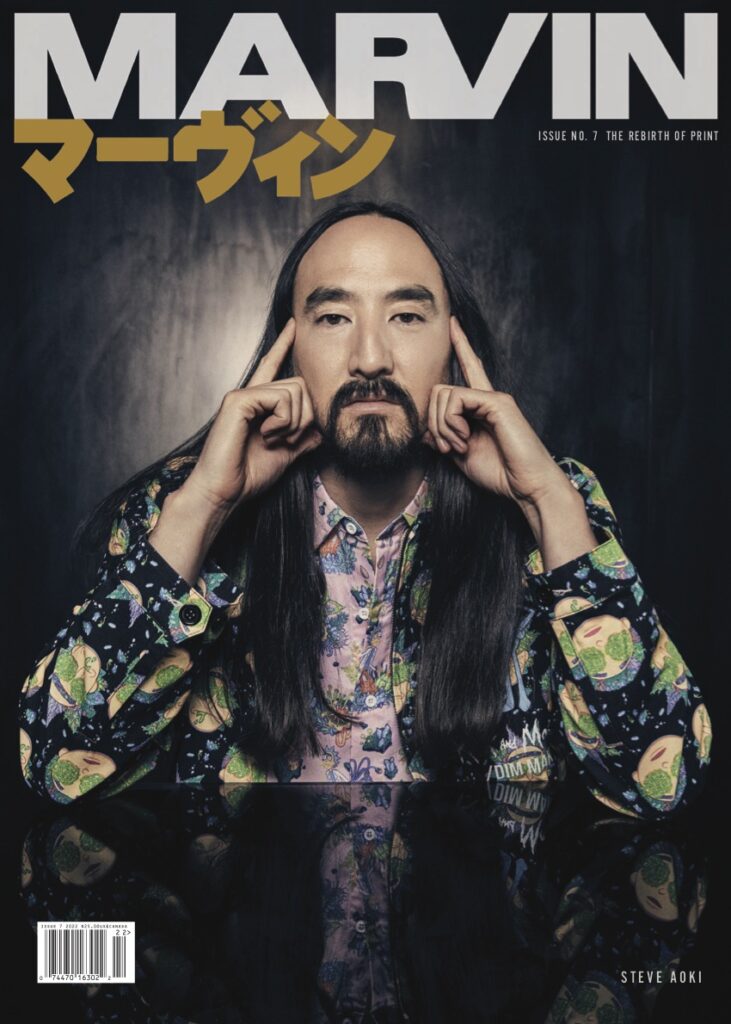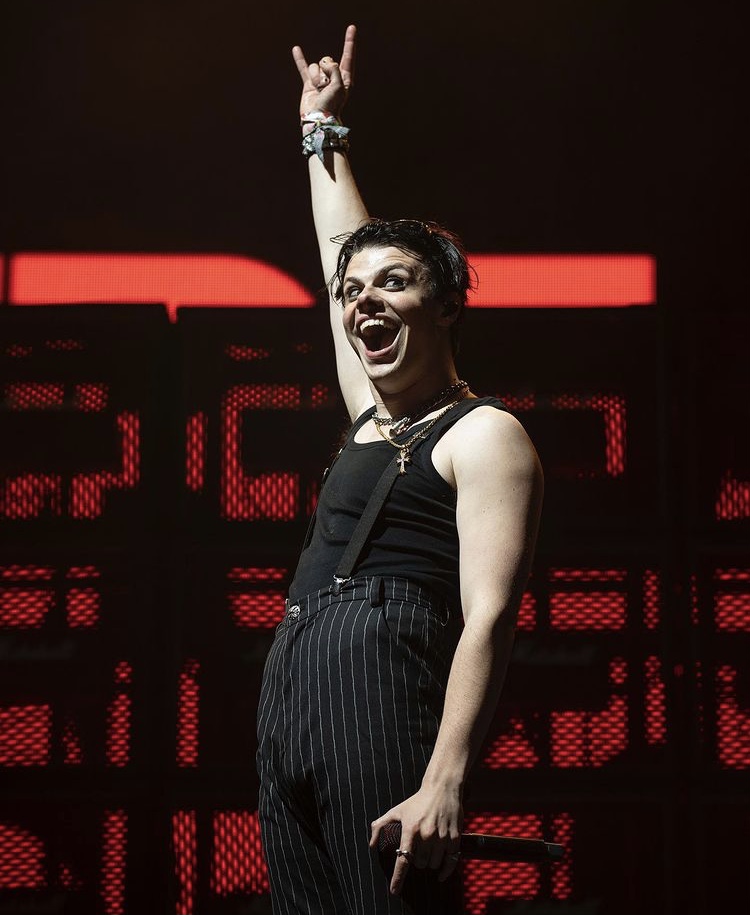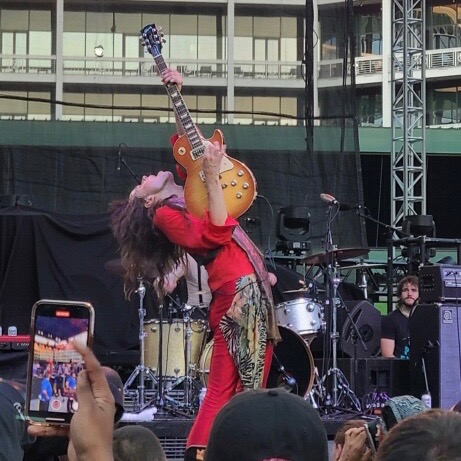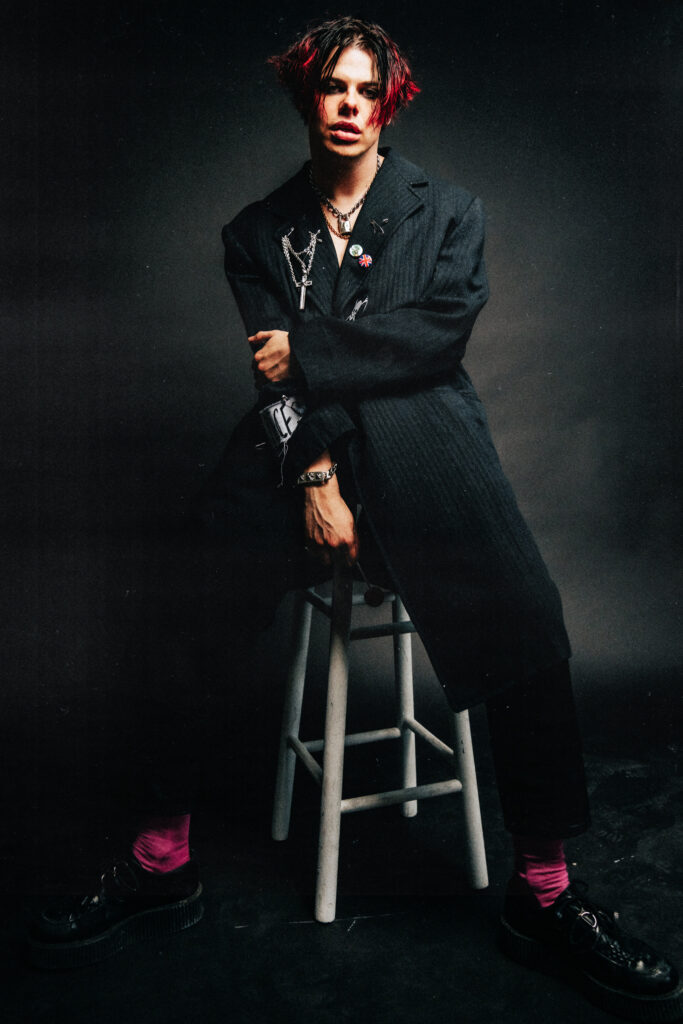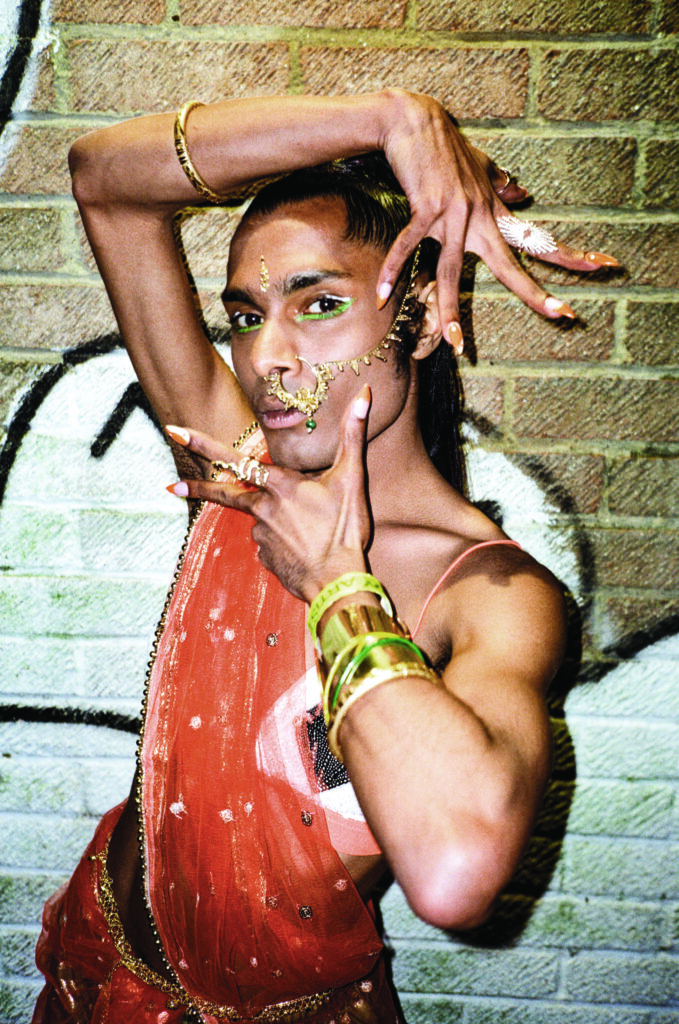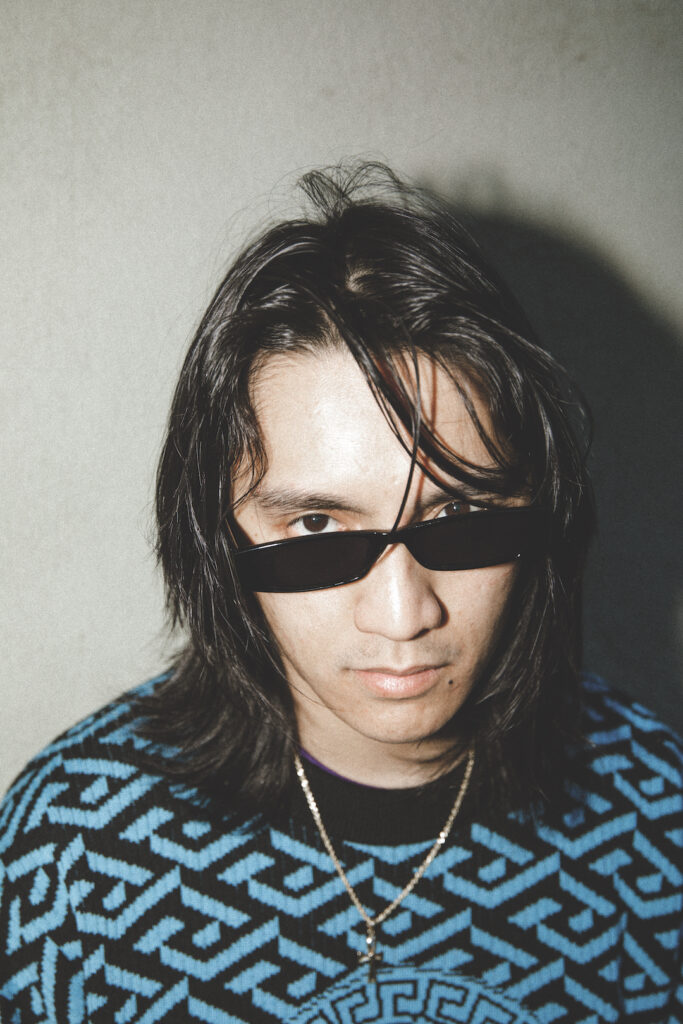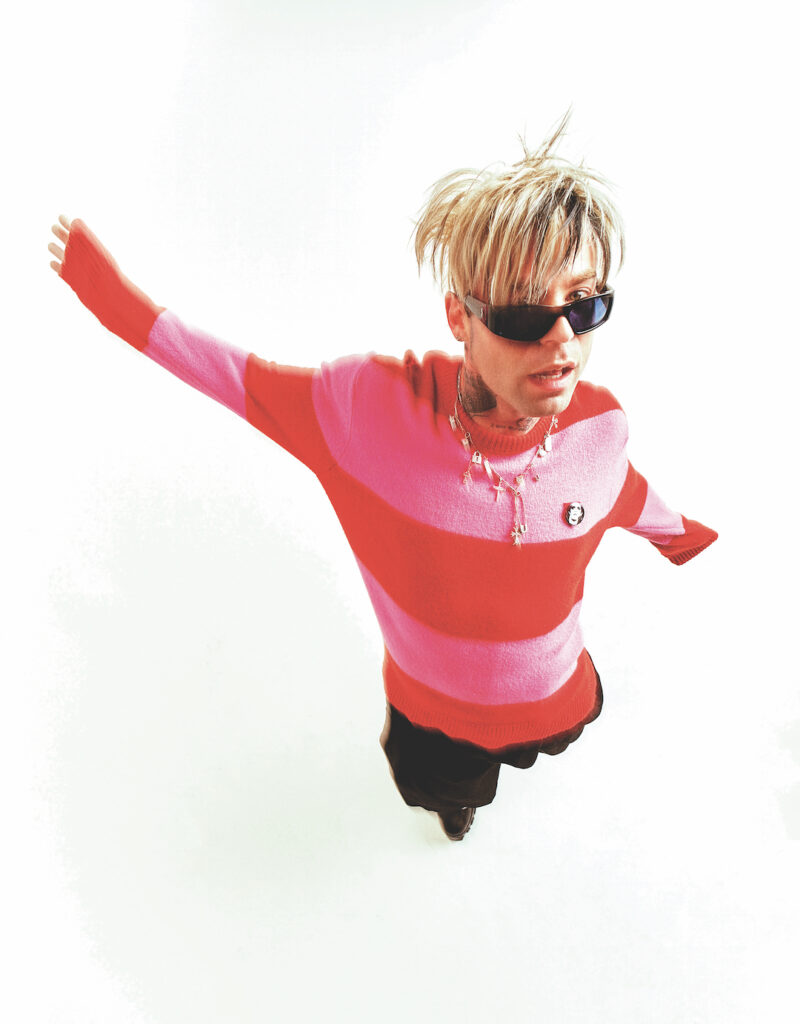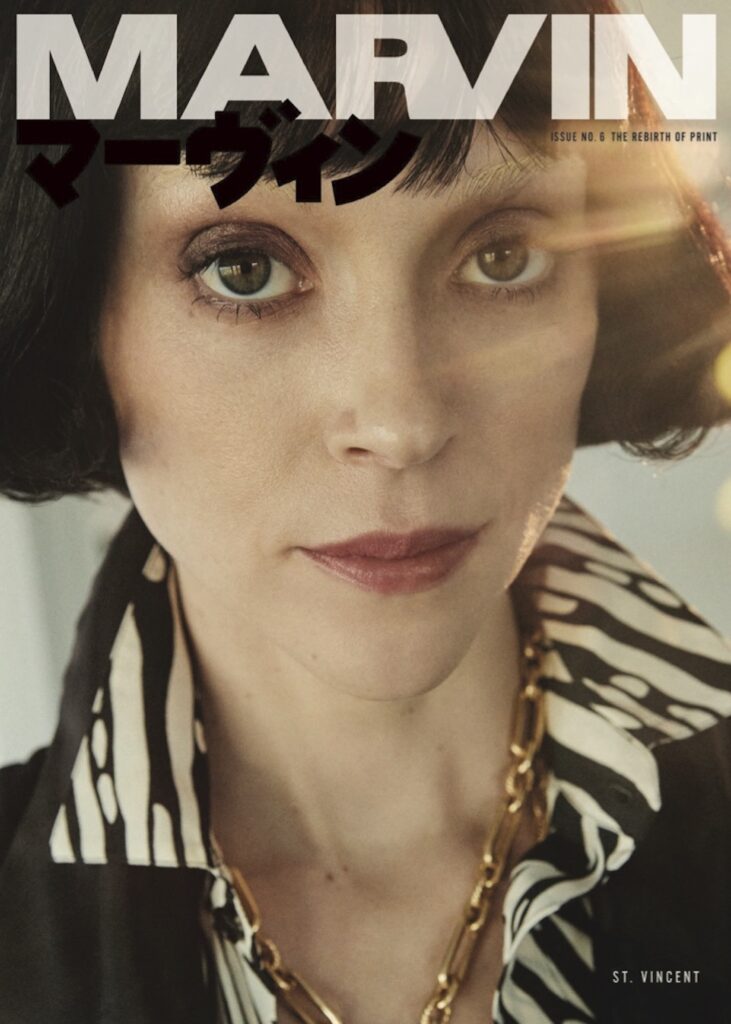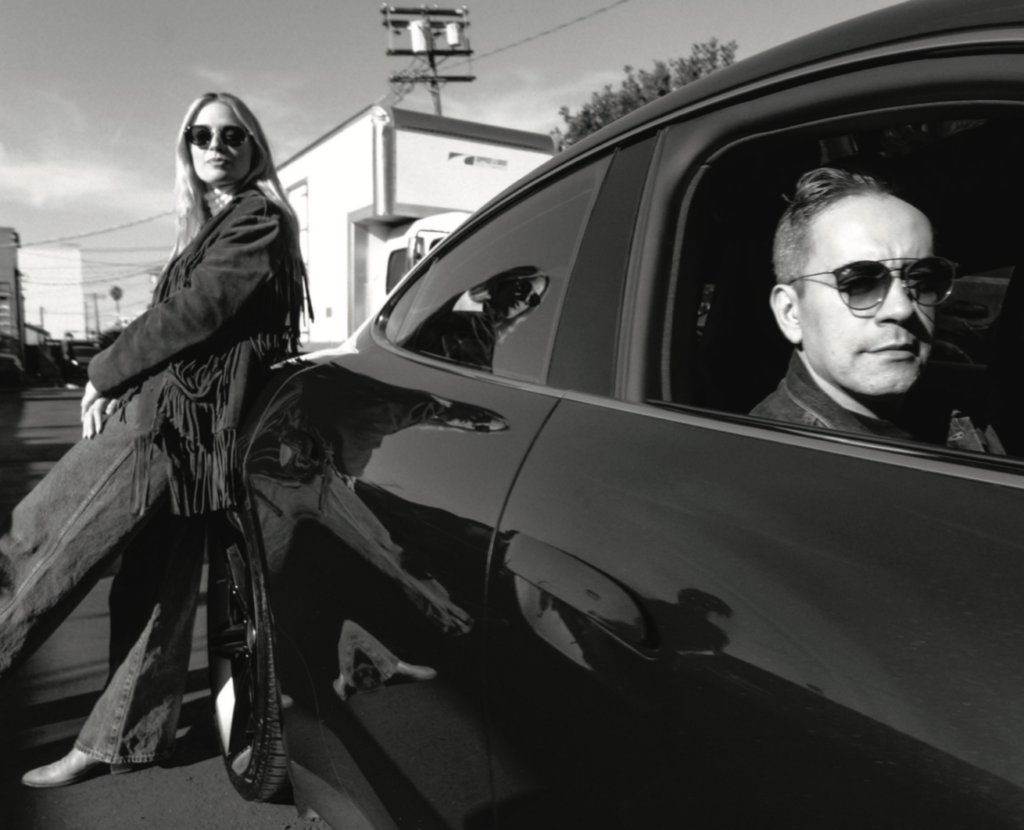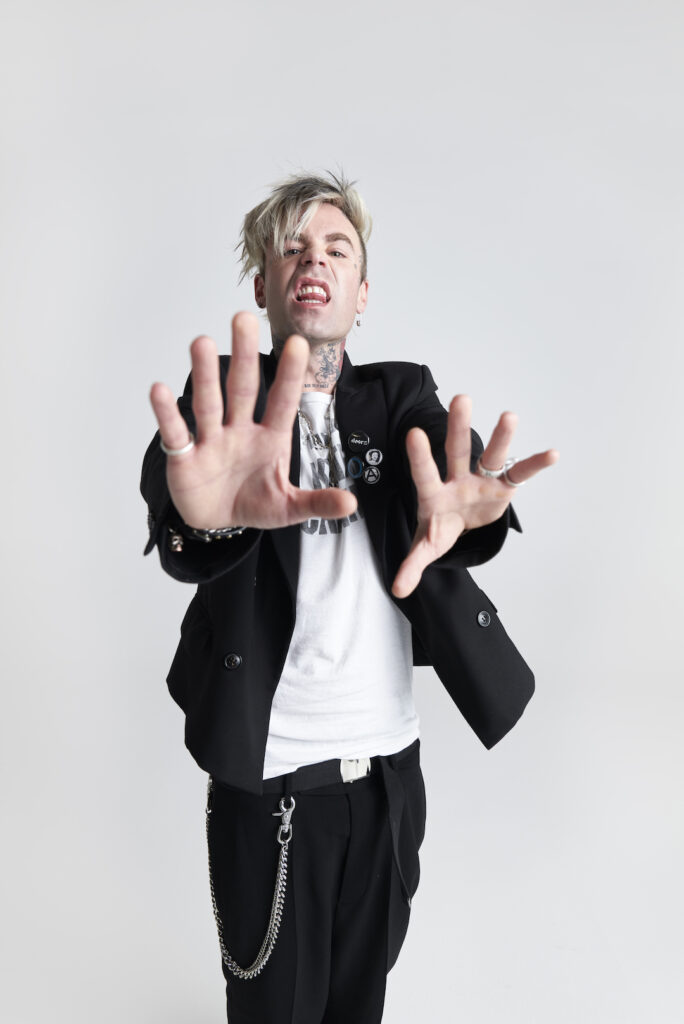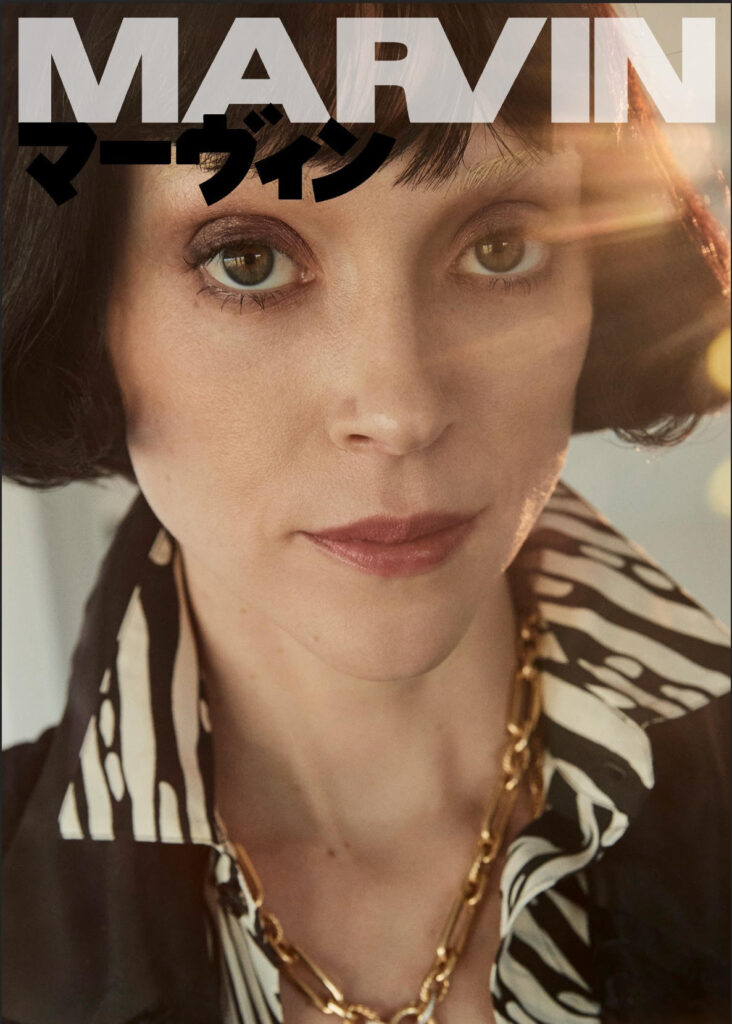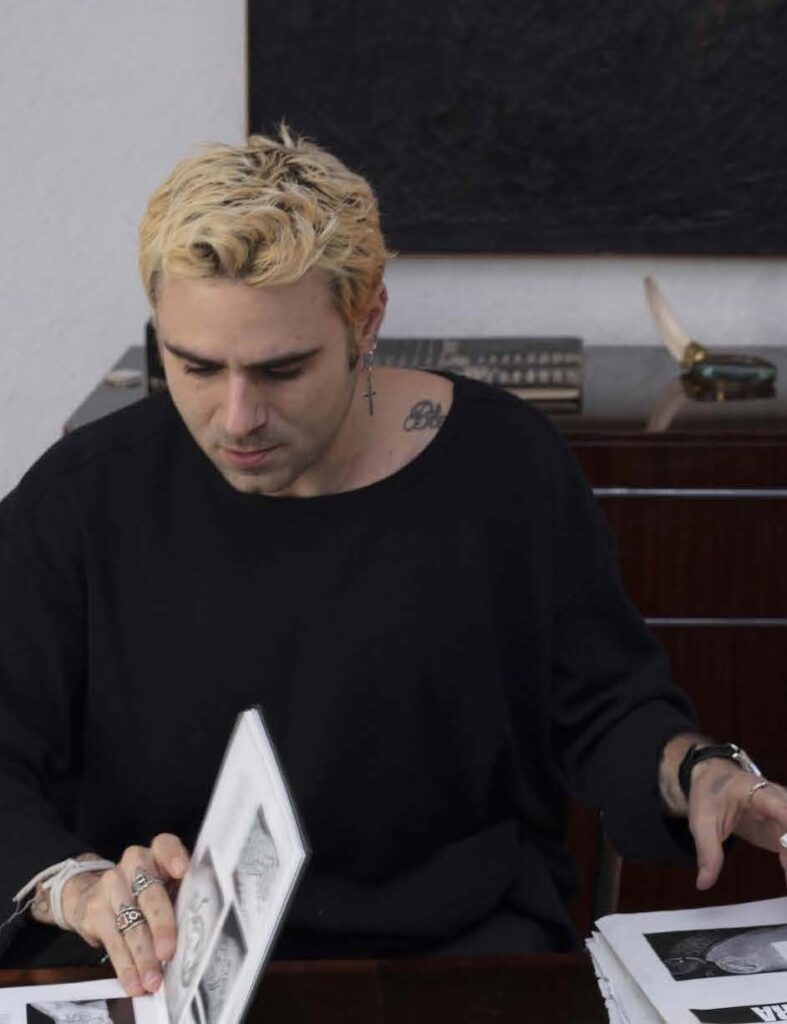Alan McGee, Co-Founder of Creation Records, Takes Us Behind the Scenes on the Film Based Off His Autobiography, Creation Stories
Photography by Orian Williams
“It was the summer of 1993, and it was just snowing, if you know what I mean. On Fridays I’d get into the Creation [Records] offices and do three or four meetings, but I’d make sure they were all over by 1pm. Then I’d order 50 Es and we’d just have a party for the next three days. Some of the boys would go home but most of us just ordered more Es. Then we would go back to the office on Monday morning, in the clothes we’d worn all weekend, and start all over again. And that was 26 weekends out of 52.”
This story, like so many that Alan McGee crams into our Zoom call, is punctuated by two things: a head-shake of sheer wonderment at the madness of it all. And laughter. Lots of laughter.
A disclaimer: the Alan McGee talking is not the Alan McGee portrayed in the new movie Creation Stories, which is based on his autobiography. Nowadays he’s trim and charming, attentive and thoughtful. On screen though the McGee that Ewan Bremner portrays is something else entirely. He’s a hand grenade of sheer energy, throwing himself into every situation and blagging, cajoling and snorting his way through the 80s and 90s. He dodges bailiffs, behaves more badly than his bands (not bad seeing as his roster contained both Primal Scream and Oasis), rants, raves and ends up having a breakdown on a transatlantic flight after a three-day bender in LA crack dens. He’s a loose wire sparking right at the center of British life: having tea at Chequers Court (the country home of the British PM) and Jimmy Savile (more on that later) and ending up as well-known as his musicians. He might be the only British record label boss that your mum has heard of.
I asked if he still recognized himself in Bremner’s portrayal.
“Oh yes. I’ve totally revamped my life in every way since but back then I was a fucking lunatic all the time and a dick half the time. Creation, in the eighties and the nineties, we were all barely literate. What we were doing wasn’t business, it was just me being mad. I had Primal Scream doing well and then I met the Gallaghers, and when they blew up it made it look like I knew what I was doing. But underneath
I was utterly, utterly fucked. I just got lucky that I found these two mad bastards who wanted success just as much as I did. Back then I used to walk into places like, ‘coom on’ (at this point he executes a perfect Liam Gallagher pimp-walk), because I was a little guy fronting out a whole load of bullshit in the hope that nobody would notice. If you behaved like that now you’d be locked up. I look at the things I said back then and I was just fronting. The things I said about people like Coldplay and other bands were wild. But the truth is, compared to today’s bands, Chris Martin is like fucking Ian Curtis.”
The film begins right back in Glasgow in the 70s where Alan and his “best pal” Bobby Gillespie (soon-would-be The Jesus & Mary Chain drummer and Primal Scream frontman) are total musical obsessives. The pair are driven by the arrival of Sex Pistols to start something of their own. They throw themselves into bands and fanzines, gigs and club nights.
“I had so few routes out of my fucking life—music was it. If I didn’t do music, and make it successful, then I was basically a laborer. Or a taxi driver if I was really lucky. So I had to make it work and sometimes that’s all you need—just wanting it more than other people. We come from punk, me and Bobby, and after punk you believed you could be on Top of the Pops, you believed you could be Marc Bolan. But now there’s a generation that thinks, ‘Oh that only happens to other people.’ I came down to London with nothing, and at the very first party I went to I met a girl who lived in a squat. If I hadn’t blagged going home with her then I never would have found that first place to live. Without that night I’d have gone home and I’d be on benefits now.”
When Bobby Gillespie visited Alan with the rest of The Jesus and Mary Chain in London, McGee set them to work, “there was four of us on the floor, under a sleeping bag or something.” Gillespie recollects, “Alan had us in his back room, folding record sleeves. He and Andrew Innes had a couple of bands in the early 80s and I suggested to them that there was a cheap way to get a record sleeve printed as I knew a guy who had a printing press in his garage. So Alan would send me the artwork, I’d give it to the printer, he would print like 2000 copies. Then Alan would come up to Glasgow and I’d give him them. He’d play me the latest songs that he was going to release on his label. At some point, Alan got proper single sleeves, but the foldout ones, that I got printed, are the collectible ones. When we were having the foldout sleeves printed, Alan was kind of running it out of his flat in Tottenham. Then they moved to Westgate Street in Hackney, above a kind of sweatshop. He moved to Primrose Hill in 1996, so from Hackney to Primrose Hill was quite a jump. I think he always did party, but I think he partied more when he had more money.”
The film captures some of the ramshackle energy of those early gigs that Alan put on in London, in a pub just off Tottenham Court Road, rechristened, “The Living Room.”
“I was the first one to do these little gigs above a pub.” McGee picks up the story. “The smallest gig on the circuit at the time was the Clarendon, which held 500. The Living Room was 100 capacity so the Nightingales or the [Television] Personalities could sell it out. It made them feel like they were massive bands—they sold out London.”
The film really ramps up the madness as we hit the nineties and Creation bands like Primal Scream and Oasis have hits. Did it help that Irvine Welsh (who wrote the film) was there at the time?”
“Oh yes. I’ve known Irvine since about ‘91 back when he was only famous in Edinburgh. When Trainspotting came out, he became an international star but he was still hanging out, coming to [award show] the Brits with us—if you see the footage now you can see him getting me in a headlock while Oasis are on stage—and he was always just my fucking pal. It was him who read the book and thought it would make a film. But it’s Irvine’s version of Creation—the Hollywood version. It was him that added the scene of me making up with my dad at the end. In reality we’ve not spoken in years. And Ewan Bremner is a posh version of me. I love him, but he’s nice – he’s not a guy off a council estate. But if the film is going to be an international success then I suppose you have to be able to understand what the fuck Ewan is saying.”
And, though it’s not the end of the movie, the scene at Chequers, when you end up having dinner with TV personality Jimmy Savile (later revealed to have been one of Britain’s worst pedophiles) and Tony Blair—is that where you knew it had all gone wrong?
“Chequers was just me going, ‘Ah fuck it., let’s see where this goes’. I went with Kate [Holmes, his wife] and they sat me at one end, right next to the security guard, and put Kate between Dame Judi Dench and Savile. And he had his hand on her knee straight away. I could just tell he was a wrong ‘un but I didn’t know what kind of wrong ‘un he was. Growing up in Glasgow I knew gangsters and when I met Savile that’s what I thought he was: just a gangster cunt with his own security guard.”
If that was a low point, what are you proudest of?
“Oh man. Not dying. Not losing my money. Not losing my mind. Look, so many people, when we started the label, thought we’d never make it but we never went down. There were lots of near misses but we survived. That’s what I’m proudest of: never being beaten.”
At first sight Nick Moran and Alan McGee are worlds apart; one the cockney star of Lock Stock and Two Smoking Barrels and the other a Glaswegian label boss but scratch the surface and there are similarities. Both are working class kids made good, both are poachers-turned-gamekeepers with their previous lives as musician and actor preparing them for being a businessman and film director. And both are tenaciously ambitious. When I asked Nick what drew him to the story he answered with a question of his own.
“Do mad people become rich, or does money make you mental? That’s what I wanted to know. I see this question all the time with people I know. Did getting to the top drive them mad or does madness give them the wings to get them there? Alan’s a good example, as is executive producer Danny Boyle. They both have that working-class ethic combined with a compulsion to get it right. I think people forget that it was hard work doing what he did—taking a crappy pub in NoHo and turning into the go-to place for indie bands. He was just 20 years old then, making it happen. And then running a massive label. That’s industry and if Alan wasn’t from Glasgow with two CSEs [Certificate of Secondary Education] he wouldn’t have been so driven to succeed. Dick Green (Creation consigliere) had done half an engineering degree so he was the organized one. He was the nearest thing to an academic. The whole Creation team were autodidacts. They could never rest on their laurels… because they didn’t have any laurels.”
Alan’s very humble about his success and keeps putting it down to luck, but in Nick’s film he is recast as something of a sorcerer. I asked if that was how Nick saw him.
“Totally. It’s a film about a guy who thinks he’s a magician. When Ewan was first offered the role he said to me, “so he starts a label and has a bunch of bands who do OK? Who’s going to want to see that?” So I had to explain: here’s a guy who believes in magic and alchemy and turning shit into gold. And if everything you touch turns to gold then you can’t help but bring about your own downfall. I made it into kind of a Glasgow mafia film; it needed Alan to be a fish out of water so that anyone who has grown up in a council house and gone on to work surrounded by wankers can see themselves in him.” Glasgow is almost a character in its own right in the film. Alan’s a proud Scot but has to get away to succeed.
“The thing you push against is the thing that props you up. Alan thinks his dad’s a tool but he needs something to rebel against to be a rebel. The Gallaghers were always being asked what a “wonderwall” was, and they could never answer. Well, I think Creation Stories finally answers that question. A “wonderwall” is the thing you’re propped up against that supports you as you push against it.”
I told Nick that Creation Stories was funnier than you might expect.
“Comedy is the lube. There are three or four ‘where are the tissues’ moments in this film because you care about the characters but if you’re making a serious political point then you can make a load of dick jokes too. It’s the difference between Hunter S Thompson and Viz [comics] magazine. That’s how we get away with a scene of a record company executive getting roger’d over a desk. We all know that corporate fucks what’s cool, and here we show it in the flesh. There are no British films as smart as Vice and The Big Short. British films don’t push hard enough. Those nice, pleasant, wide-screen pictures of people in stately homes—that’s not enough. We can’t compete on giant dinosaurs and spaceships here but we can compete with great actors and scripts. And then all I have to do is make sure the visual story is as great as the script or the performances.”
“They gave away ecstasy at the door.”
Producer Orian Williams is trying to explain how a kid who grew up in Texas, whose first gig was Elvis Presley at the Houston Astrodome, and who saw Johnny Cash and Willie Nelson as a child, has become the go-to producer for the best Brit-music biopics, so he’s telling me about where he first heard British music. “There was a club called Numbers in the gay district of Houston and they handed you a tab of ecstasy with your ticket; this is before it was even illegal. So it drew a crowd of transvestites, beautiful rich girls and punk rockers, all dancing to videos as the records played. It’s where I heard people like ABC, The Cure and Depeche Mode. And the local bookstore would get one or two NMEs once a month at like $20 a time, so I’d save up and buy them. The records, the videos, the photos: they were my window to these other frontiers.”
It grew into a love affair with British music and the look of British bands which continues to this day. It was Orian that convinced legendary photographer Anton Corbijn to try directing on the Joy Division biopic Control. It was Orian who greenlit a script about Morrissey before The Smiths [England Is Mine], written by a British writer whose sole credit until then was a script about cult snooker player Alex “Hurricane” Higgins. And it’s Orian who put together the dream team of Irvine Welsh, Alan McGee, Danny Boyle and Nick Moran for Creation Stories.
“It’s the story of a guy succeeding with passion against all odds and thriving through the insanity. Alan had his own addictions and issues and family drama— all things normal people have but he succeeded. He had this vision and you see it grow throughout the film. Everyone in America I’ve shown clips to can’t wait to see it. They’re freaking out about it because even if they don’t like the music they recognize the situation – that struggle to escape and figure life out. And of course lots of people get into it through Oasis” says Orian.
Ah, the O-word. There must have been pressure to make it “The Oasis Story”, seeing as the name Alan McGee doesn’t mean much to most Americans. “I don’t like to be obvious. I loved doing the Morrissey film pre-Smiths because there’s an intimacy there that is beautiful. Control is taken from Debbie’s angle [widow of Ian Curtis, Debbie Woodruff] and that makes you more curious. I like a more mysterious take on an individual.”
Nick Moran and Irvine Welsh both saw some of Alan in their story. Did his life resonate with yours? “Definitely. These films take decades to make and I could easily have given up. But I saw every ‘no’ as a ‘yes.’ I look at Alan and [Factory Records boss] Tony Wilson and they make me say ‘pick your highest goal’. Don’t say you wanna produce commercials, say you wanna produce films that win Oscars. Don’t say you want to work in a studio – say you want to run a studio. I go into films with this mentality that anything’s possible.” I ask Orian if it feels kin to the same attitude that Alan had, when he thought all of his bands were going to be bigger than U2?
“Exactly, Alan was insane enough to see the beauty through the mayhem. There’s always a ‘yes’ around the corner. A ‘no’ is a signifier to keep going.”
@creationstoriesthemovie


